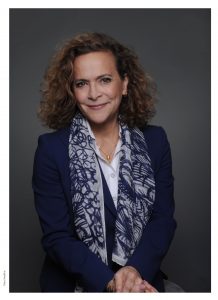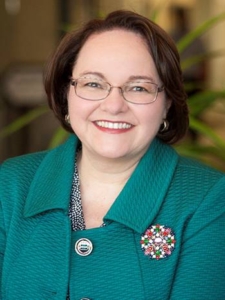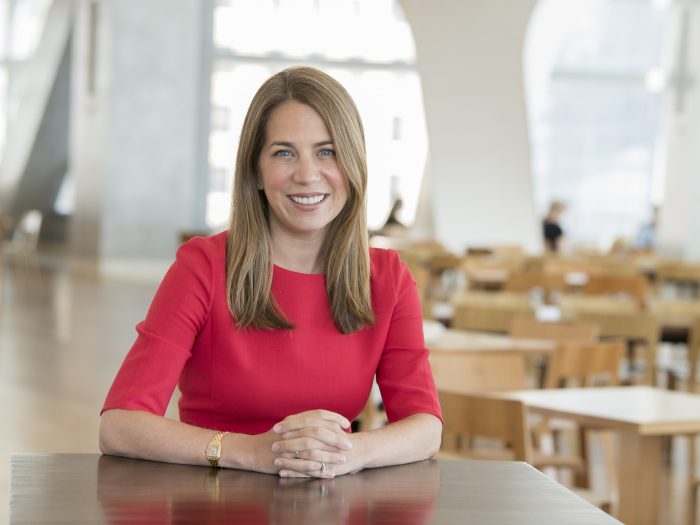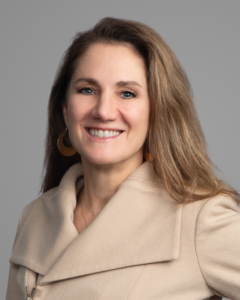 “What makes you a good attorney is learning from your mistakes—almost that trial by fire aspect that lets you constantly grow,” says Katten’s Shana Ramirez.
“What makes you a good attorney is learning from your mistakes—almost that trial by fire aspect that lets you constantly grow,” says Katten’s Shana Ramirez.
Ramirez began her career in the finance area of law in New York after graduating from University of Michigan Law School. She moved to Los Angeles and worked with two firms before joining Katten as a partner in the commercial finance practice in 2018. Her experience covers a variety of financings and arrangements, including acquisition finance, leveraged finance, subordinated debt facilities, asset-based credit facilities, subscription facilities, investment grade credit facilities, transactions involving real estate and first lien/second lien transactions. Since joining Katten, she has established strong client relationships as she continues to build her practice, which she names among her most important achievements.
In addition to her work in the leveraged loan space, currently Ramirez’s work includes developing bespoke financial arrangements for private investment funds, which she has found to be challenging and interesting; as she says, it’s rewarding to work on something new in a world where most of the strategies have been done before. Specifically, she has seen exciting new trends and innovative solutions for creating leverage for private investment funds. “It will be interesting to see how private investment funds continue to find unique ways to leverage their portfolios,” she says.
Finding Balance as She Enters a New Chapter
As Ramirez points out, women often try to be the best at all their varied roles—mom, wife, caregiver or employee—and it can be hard to balance all that at any one time, given the competing demands. As she is due with her first child in early September, she has seen a lot of women go through this new life stage and knows how challenging it can be. “It takes effort to balance our desire to want to excel in all areas, including our personal lives.”
She encourages younger women to stay the course—even when it can be harder to see the path forward—especially if working in male-dominated industries. While it can be demanding and you might often feel pushed to your limits, she has found the pay-off is worth it if you stick with it rather than veering onto another path.
And she reminds women who have succeeded as attorneys to always be supportive of one another, the same way that they are the best advocates they can be for clients. She particularly appreciates when other young moms offer advice, and she is able to build a community around that commonality.
That’s why Ramirez encourages younger attorneys to foster relationships with other female attorneys and keep them strong. “You never know when your paths will cross again,” she says. “I would not be where I am without the relationships I have built,” she says, encouraging fellow attorneys to stay in touch even after they’ve left a particular firm or are no longer working together.
A Focus on Diversity and Inclusion Extends Outside Her Work Day
Ramirez is an active participant in Katten’s Women’s Leadership Forum, a women-focused group that hosts events designed to support female attorneys in their career development. “It’s a relatively smaller group, so it’s easy to get to know people better in this type of setting; as a new partner I felt very welcome,” she says, adding that they have been extremely supportive regarding her pregnancy and upcoming maternity leave.
As a diverse attorney, Ramirez has a strong history of pro bono service in Southern California, ranging from assisting domestic violence victims with U visa applications to helping families with adoption petitions. She has always felt a philanthropic tie and prioritizes giving back as a board member for Public Counsel, the largest pro bono firm in the country. Based in Los Angeles, the firm tackles issues of homelessness, adoption, consumer fraud, immigration matters and more working with its pro bono partners including Katten. “It’s important for me as a minority female partner to look out for others and the issues that are important to them.”




 “Don’t think too hard about your next career step; try whatever is your fancy and give it a go. That’s how you will find success in both your personal and professional life,” says Adrienne Rubin.
“Don’t think too hard about your next career step; try whatever is your fancy and give it a go. That’s how you will find success in both your personal and professional life,” says Adrienne Rubin.
 While mentors are important, Neddy Perez also encourages women to seek sponsors.
While mentors are important, Neddy Perez also encourages women to seek sponsors.

 As a practicing lawyer since 1985, Connie Fratianni has seen a wide variety of cycles and changes.
As a practicing lawyer since 1985, Connie Fratianni has seen a wide variety of cycles and changes.